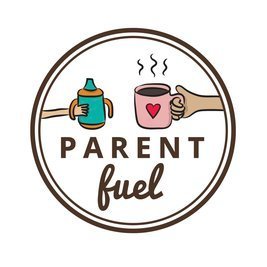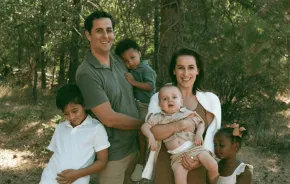
I knew I’d cry while watching Roadtrip Nation’s hour-long special Being You. This documentary follows three young adults — Stephanie, Noah and Nicole — as they travel across the U.S. and meet with others who, like them, learn differently.
As a mom of an 11-year-old with learning differences, I’ve had a front-row seat to the uphill, sometimes hard-as-hell school journey that kids like mine face.
As a mom of an 11-year-old with learning differences (LDs), I’ve had a front-row seat to the uphill, sometimes hard-as-hell school journey that kids like mine face. Grief and inspiration unleashed salty tear storms while Stephanie, 22, diagnosed with nonverbal processing disorder; Noah, 18, diagnosed with dyslexia and ADHD; and Nicole, 23, diagnosed with dyspraxia and dyslexia, interviewed people who used their differences to build lives doing what they loved.
John Rodrigues, the first adult the trio interviewed, dropped out of high school at age 16 to carve ice sculptures on cruise ships, attended Harvard University and is now an educator, ice sculptor and author. Noah asks Rodrigues if he could restart his life without dyslexia, would he.
“No way … that’s too much of who I am,” Rodrigues says. “I think the suffering for 16 years was really rough. That’s still something that I think is painful even now but I credit dyslexia with giving me the talents to do ice sculpting, too.”
I sobbed when Stephanie said, “I want to be as happy as John Rodrigues; that should be my goal.”
I want my daughter to be as happy as John Rodrigues, too. When she joined me to watch the last 20 minutes of Being You, we paused the film often so I could answer her questions. She wanted to know each person’s learning issue, why I was almost crying and why it’s so important to share your LD story with others, including the difficulties and strengths they bring to your life.
With this thought in mind, I talked with Stephanie from the film. She currently works for Eye to Eye, a national mentoring organization that pairs young people with LDs with mentors who share that experience.
Tell me about your LD.
I have a nonverbal processing disorder, which means I have a hard time processing nonverbal communication, from body language to written text. Reading and taking notes is hard for me, as is taking an idea in my head or something I see and putting it onto paper. I also have a visual memory disorder, which means I have no visual memory. When I say the word ‘bike,’ I don’t have that vision of bike. It’s hard to do state tests and studying that involves visual recall is difficult.
[For accommodations] I use text-to-speech and speech-to-text software [called Dragon Speak] and [multisensory products from] Kurzweil. I also take extra time to work through things and talk through them. I took tests in a quiet room [by myself] so I could re-think things out loud. I also use a note taker and use a scribe pen when a notetaker isn’t available.
What’s been the hardest parts of having an LD?
The hardest parts for me have changed over time. When I was younger, I wanted desperately to learn and to gain information and I wasn’t able to do that at a rate that kept up with what I felt my intelligence level was at. I wasn’t absorbing as much when I had to read and I wanted so much more out of school.
As I get older, it’s manifested into a social issue. I’m a millennial; everyone texts and uses emojis. [It’s hard] to use the subway and not understand what the dots mean and to not understand everybody’s body language.
What strengths to you attribute to your LD?
I listen very well; that’s where I get my information. I absorb much more than most people. I will remember a lot of things that people say. I’m also very patient because I’ve had to learn to be patient with myself. When someone is not understanding something, I am patient. I can work with almost anybody. Those are my two that are my favorite [strengths]. I can also explain things many different ways.
You met a lot of amazing people on your trip. Which person made the biggest impact on you and why?
They all affected me in different ways. I think one of the two people I was really surprised by was Pete Denman, the one in the wheelchair [Denman is a Portland, Oregon, resident who designed how Stephan Hawking uses his computer]. He was so inspirational and he was so real that your LD doesn’t get easier and you have to deal with it every day and that was really refreshing. [With LD], you hear this inspirational thing, you’re going to be the next Richard Branson or it’s really hard. Pete was successful but he struggled every day.
Also, Peggy Stern, an Academy Award-winning documentary filmmaker [diagnosed with dyslexia]. She really understood where we were coming from on a way different level. She really struggled and went through her own personal demons to get where she is at. Here’s someone who has done something most people only dream about and she herself said a lot of times she couldn’t believe she could do it.
How did Being You change your life?
After graduating from college, I was afraid of joining the workforce and having to navigate that. [During this experience I learned] no one’s going to hire you for something you’re really bad at. As a child of No Child Left Behind, if you didn’t get something, you had to keep trying to learn it until you broke. I learned no one’s going to make you do that; it’s not an efficient way to run a business.
Just because you don’t fit into the model that people give for intelligence doesn’t mean you aren’t intelligent.
Having a LD is a gift.
Do you tell your LD story a lot now? Why is that a good thing?
I was part of Eye to Eye in college; I volunteered for them for 3 years. That’s why I was so adamant about telling my story [in Being You]. For me, the most important thing is to tell my story on a grand scale. I thought it was something that would change people’s lives; that’s why I did the documentary.
What message do you want to give kids struggling with LDs?
Just because you don’t fit into the model that people give for intelligence doesn’t mean you aren’t intelligent. Having a LD is a gift. The biggest thing our world needs is people who see things differently and we have that. We spend so many years trying to fit a square peg into a round hole that we lose that idea.
What message do you want to give people without LDs?
Learning differently doesn’t make you any less intelligent. Just because someone needs a little more help fitting into our educational system doesn’t make them any less intelligent then you are.
Where to watch Being You and resources for LD kids
It’s easy to watch Being You online: Just click here.
If you want to keep the conversation going after the credits roll, check out parent and educator discussion guides on Understood.org and BeingYouFilm.com. There you’ll find tools and resources for conversations with kids who have learning and attention issues.











